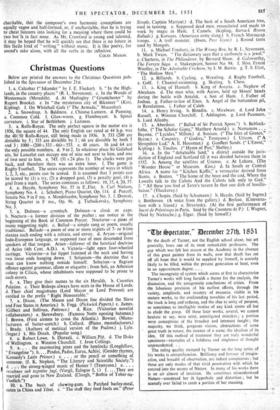"Vie 6pertator," Electinber 27t1), 1851
BY the death of Turner, not the English school alone, but art generally, loses one of its most remarkable professors. The gap which was felt last season at the Academy in the absence of this great painter from its walls, now that death has cut off all hope that it would be supplied by himself, is scarcely likely to be filled, within the present generation at least, even in an approximate degree... .
The incongruity of system which seems at first to characterize Turner's works will long furnish a theme for the analysis, the discussion, and the antagonistic conclusions of critics. From the laborious precision of his earliest efforts, through the variety, amplitude, and mastery of resource, visible in his mature works, to the confounding novelties of his last period, the track is long and'arduotts, and the clue to unity of purpose, or sometimes to intelligible motive of any kind, seems all but to elude the grasp. Of these later works, several, we cannot hesitaie to say, were utter, unmitigated mistakes ; a portion were conceptions of the broadest and intensest insight ; the majority, we think, gorgeous visions, abstractions of some great truth in nature, the essence of a scene, the idealism of its idea. Of this method of treatment they are truly wonderful specimens—examples of a boldness and singleness of thought unprecedented. . .
The ruling quality stamped by Turner on the long series of his works is comprehension. Brilliancy and fervour of imagin- ation, and breadth of observation, are indeed conspicuous ; but these are only modes of that vivid penetration with which he entered into the secrets of Nature. In many of his works there is an air almost of intuition. He sometimes misunderstood Nature—construed her Ur hyperbole and distortion ; but he scarcely ever failed to catch a portion of her meaning.






























 Previous page
Previous page